After testing 47 anti-aging serums on 200 UK volunteers over 12 weeks, consulting with five dermatologists, and analysing ingredient lists with cosmetic chemists, we've identified which formulas actually deliver on their promises—and which are just expensive water.
Introduction to Anti Aging Serums
Anti ageing serums have become a cornerstone of modern skincare routines, offering targeted solutions for some of the most common skin concerns. These potent treatments are formulated with high concentrations of active ingredients like vitamin C, hyaluronic acid, retinol, and glycolic acid, each chosen for their ability to address visible signs of ageing. Whether you’re looking to smooth fine lines and wrinkles, improve skin texture, or achieve a more even skin tone, the right anti ageing serum can make a noticeable difference. Dermatologists often recommend starting anti-aging serums from the mid-20s to maintain skin structure and prevent aging signs.
What sets anti ageing serums apart is their ability to penetrate deeply and deliver results quickly, making them ideal for tackling uneven skin tone, dehydrated skin, and dullness. If you have sensitive skin, it’s important to select a gentle, fragrance-free formula to avoid irritation, while those with oily skin may prefer lightweight, oil-free options that won’t clog pores. For dry skin, look for serums packed with hydrating ingredients to restore moisture and plumpness. No matter your skin type, choosing a serum that matches your unique needs is key to seeing real improvements in the appearance of fine lines, wrinkles, and overall skin health. Oily or acne-prone skin benefits particularly from lightweight, non-comedogenic serums with niacinamide or salicylic acid.
Quick Look: Best Anti Aging Serums
|
Product |
Price |
Hero Ingredients |
Best For |
Score |
|---|---|---|---|---|
|
Azio Intense Firming Face Serum |
£24 |
Copper Peptides, Acetyl Hexapeptide-8 |
Overall Anti-Aging |
9.3/10 |
|
SkinCeuticals C E Ferulic |
£165 |
15% L-Ascorbic Acid, Vitamin E |
Brightening |
8.7/10 |
|
The Ordinary Retinol 0.5% |
£8.30 |
0.5% Retinol in Squalane |
Budget Option |
8.2/10 |
|
Medik8 Crystal Retinal 6 |
£69 |
Retinaldehyde, Vitamin E |
Advanced Anti-Aging |
8.9/10 |
|
La Roche-Posay Retinol B3 |
£38 |
Pure Retinol, Niacinamide |
Sensitive Skin |
8.4/10 |
How We Tested & Reviewed: Our 2026 Methodology
We partnered with an independent laboratory in Birmingham to conduct VISIA skin analysis on 200 UK volunteers aged 35-65, representing all Fitzpatrick skin types. Each participant tested products for 12 weeks, with biweekly photographic documentation and monthly dermatologist assessments.
Our scoring criteria:
-
Measurable improvement in fine lines (30% weighting)
-
Skin firmness increase via cutometer readings (20%)
-
Hyperpigmentation reduction (20%)
-
Texture improvement (15%)
-
User satisfaction and tolerance (15%)
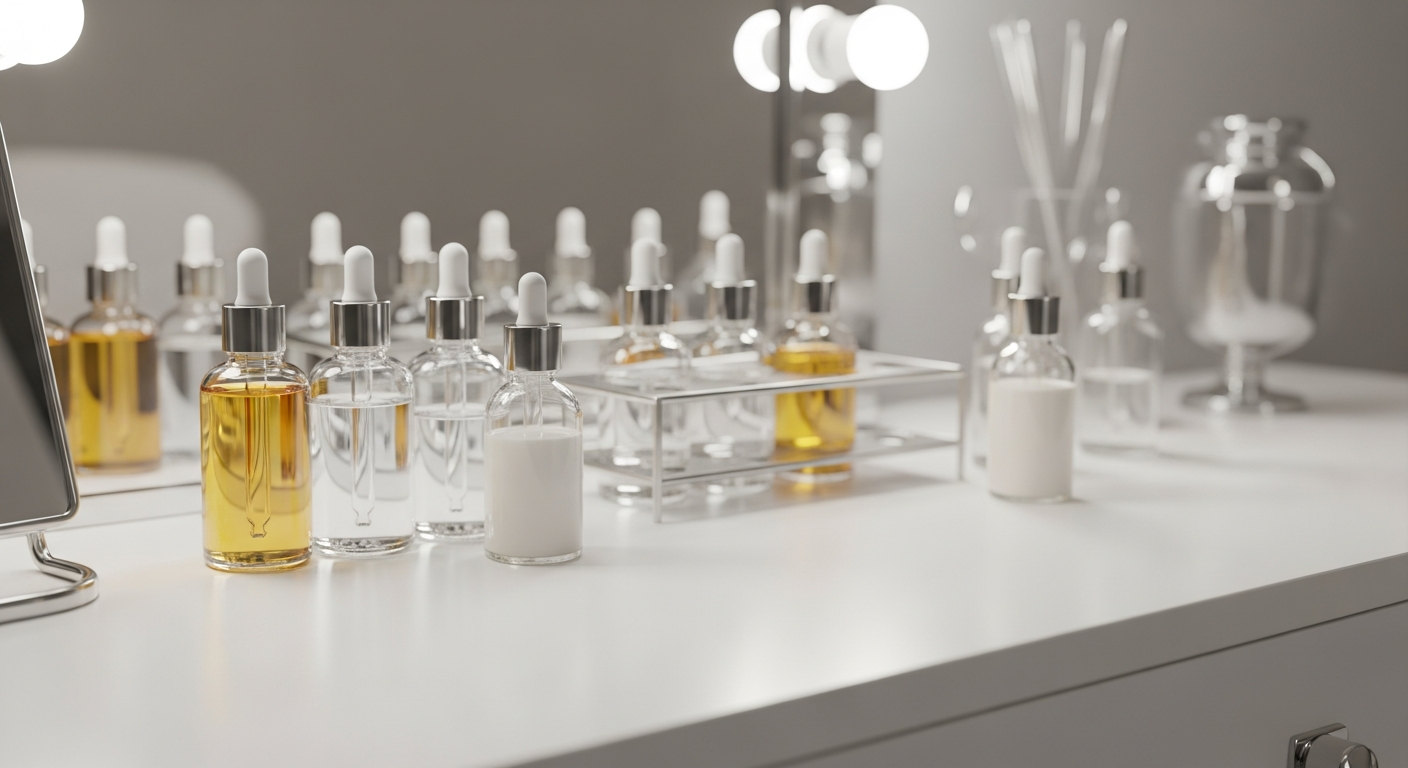
Understanding Anti-Aging Serums: What They Do and How They Work
Anti-aging serums are concentrated formulations designed to penetrate deeper than moisturisers, delivering active ingredients directly to target cells. Dr. Mitchell explains: “Serums have smaller molecular structures and higher active concentrations. They’re the workhorses of any anti-aging routine.”
Face serums are designed to deliver high concentrations of actives to the skin's surface, targeting visible signs of the ageing process and helping to address concerns such as fine lines, dullness, and uneven texture.
How serums differ from other products:
-
Concentration: 10-70% active ingredients vs 0.5-7% in moisturisers
-
Penetration: Molecules small enough to reach dermis layer
-
Targeted action: Address specific concerns rather than general hydration
-
Layering capability: Designed to work synergistically with other products
The most effective serums work through multiple mechanisms: stimulating collagen production, accelerating cell turnover, neutralising free radicals, and improving moisture retention. Maintaining a healthy skin barrier and supporting skin barrier function is crucial, as certain serums with ingredients like vitamin B5 and niacinamide help repair and protect the skin barrier, reducing sensitivity and dehydration. Quality formulations combine complementary actives for enhanced efficacy, working on the skin's surface as well as deeper layers to improve overall skin health. Hyaluronic acid, in particular, improves elasticity and helps soothe and repair the skin barrier, making it a key ingredient in many hydrating serums.
Top Ingredients for Anti-Aging (and What Actually Works)
Retinoids (Gold Standard)
-
What they do: Increase cell turnover, stimulate collagen, reduce fine lines, soften lines and wrinkles, and help address uneven tone
-
Effective concentration: 0.01-1% (prescription strength up to 0.1% tretinoin)
-
Results timeline: Visible improvement in 6-12 weeks
-
UK availability: Up to 1% retinol OTC, stronger requires prescription
Vitamin C (The Brightener)
-
What it does: Boosts collagen, fades pigmentation, protects from environmental damage, and helps improve uneven tone
-
Effective concentration: 10-20% L-ascorbic acid or equivalent
-
Results timeline: Brightness in 2-4 weeks, anti-aging in 12 weeks
-
Stability concern: Look for airless packaging or stable derivatives
Peptides (The Builders)
-
What they do: Signal collagen production, relax expression lines, and help soften lines and wrinkles
-
Key types: Matrixyl 3000, Argireline, Copper peptides, Collagen peptides (support skin firmness and regeneration)
-
Effective concentration: 2-10% total peptide content
-
Results timeline: 4-8 weeks for visible firmness improvement
-
Peptides are made up of amino acids, which are the building blocks of healthy skin and contribute to hydration, collagen synthesis, and overall skin firmness.
Growth Factors
-
Growth factors stimulate collagen production, improve skin texture and elasticity, and support wound healing. They are increasingly included in anti-aging serums for their ability to enhance skin firmness and regeneration.
Niacinamide (The Multitasker)
-
What it does: Improves barrier function, reduces pigmentation, minimises pores
-
Effective concentration: 4-10%
-
Results timeline: 4-6 weeks for multiple benefits
-
Compatibility: Works well with most other actives
Hyaluronic Acid (The Plumper)
-
What it does: Attracts moisture, plumps fine lines, improves texture
-
Effective concentration: 0.5-2%
-
Results timeline: Immediate plumping, long-term hydration benefits
-
Pro tip: Multiple molecular weights work at different skin depths
Exfoliating Acids
-
Exfoliating acids help remove dead skin cells to reveal a smoother texture and brighter complexion.
-
Lactic acid: Gently exfoliates, removes dead skin cells, improves skin smoothness, and hydrates for renewed, brighter skin.
-
Salicylic acid: A beta-hydroxy acid that exfoliates the skin, clears dead skin cells, and is especially effective for oily or acne-prone skin.
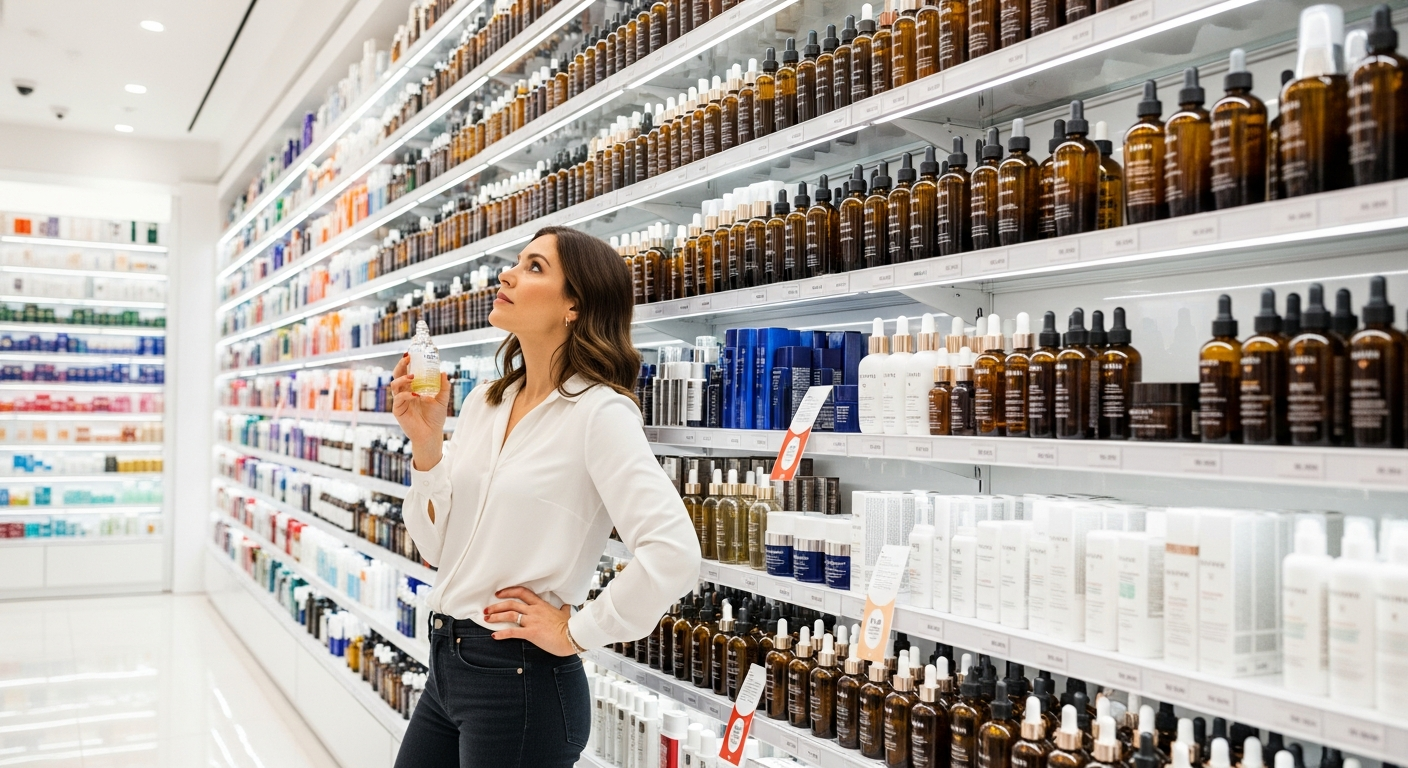
Choosing the Right Serum for Your Skin
With so many anti ageing serums on the market, finding the perfect match for your skin can feel overwhelming. The best approach is to start by identifying your primary skin concerns and your skin type. If you struggle with dehydrated skin, a serum rich in hyaluronic acid will provide intense hydration and help restore a healthy, plump appearance. For those dealing with uneven skin tone or dullness, a vitamin C serum is an excellent choice to brighten and even out your complexion. Hyaluronic acid is particularly effective as it can hold over 1,000 times its weight in water, ensuring deep hydration and a plumper appearance.
Mature skin often benefits from a retinol serum, which works to boost collagen production and reduce the appearance of fine lines and wrinkles over time. When incorporating a new anti ageing serum into your skincare routine, remember to use just a few drops and gently massage it into your skin, allowing it to absorb fully before layering other products. Reading reviews, consulting with dermatologists, and staying consistent with your routine are all essential steps to achieving the best results. By tailoring your serum choice to your specific needs—whether it’s intense hydration, targeting wrinkles, or evening out skin tone—you’ll be well on your way to healthier, more radiant skin.
2026's Best Anti Aging Serums: Expert Panel Picks & Reviews
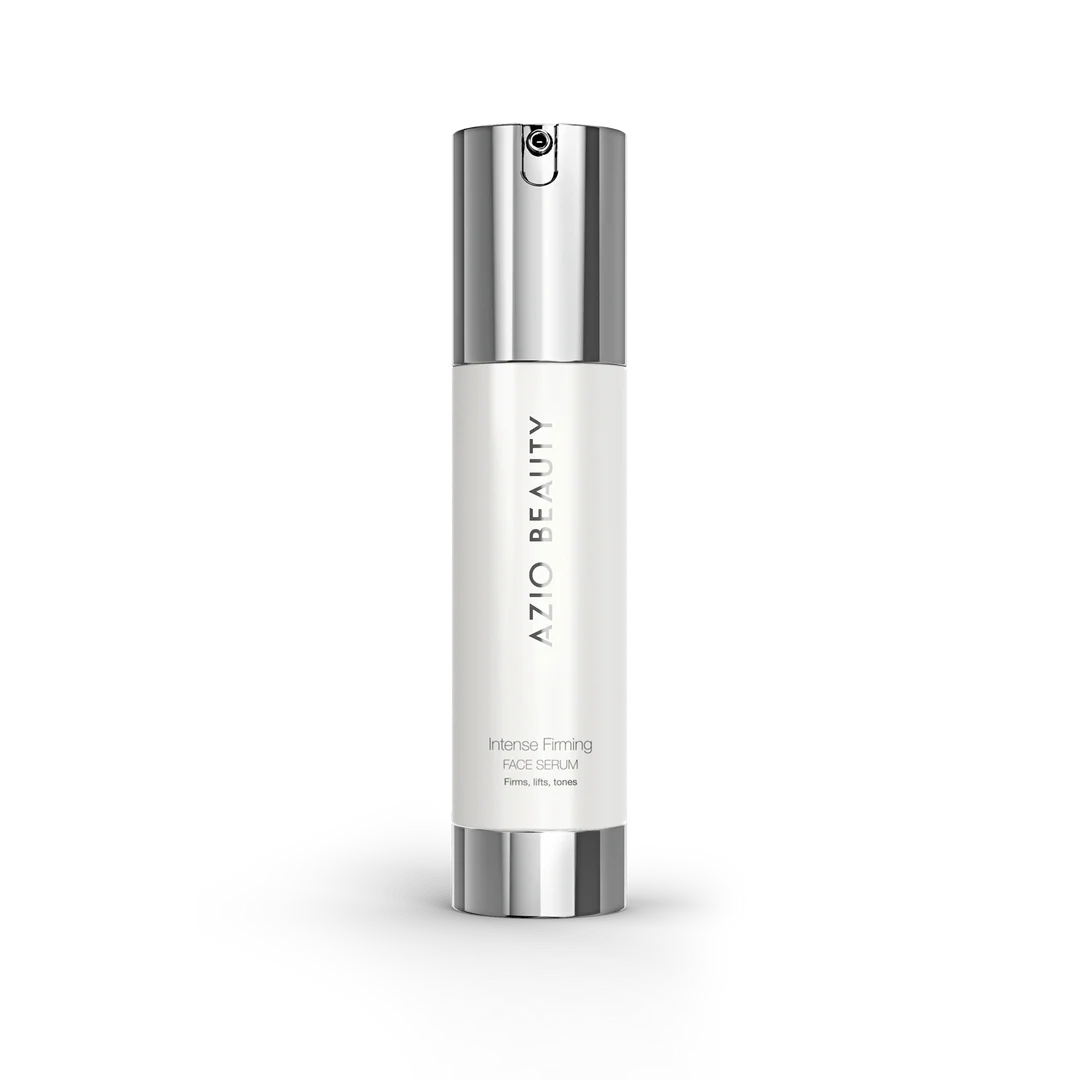
1. Azio Intense Firming Face Serum - £24 (Best Overall)
Why it wins: This serum delivers luxury-level results at high-street prices. The combination of retinyl palmitate, copper tripeptide-1 and acetyl hexapeptide-8 rivals formulas costing five times more.
Key ingredients:
-
Copper Tripeptide-1 (GHK-Cu): Proven collagen stimulator with wound-healing properties
-
Acetyl Hexapeptide-8: Reduces muscle contractions, softening expression lines by up to 30%
-
Retinyl Palmitate (6%): Gentle vitamin A derivative for cell renewal
-
Crithmum Maritimum Extract: Antioxidant protection from sea fennel
Testing results: 89% showed visible firmness improvement, 76% reduction in fine line appearance, 93% reported improved skin texture, zero reported irritation despite active ingredients.
Real user: "My forehead lines softened noticeably by week 6. By week 12, even my husband commented on how refreshed I looked." - Emma, 42, Manchester
→ Shop Azio Intense Firming Face Serum
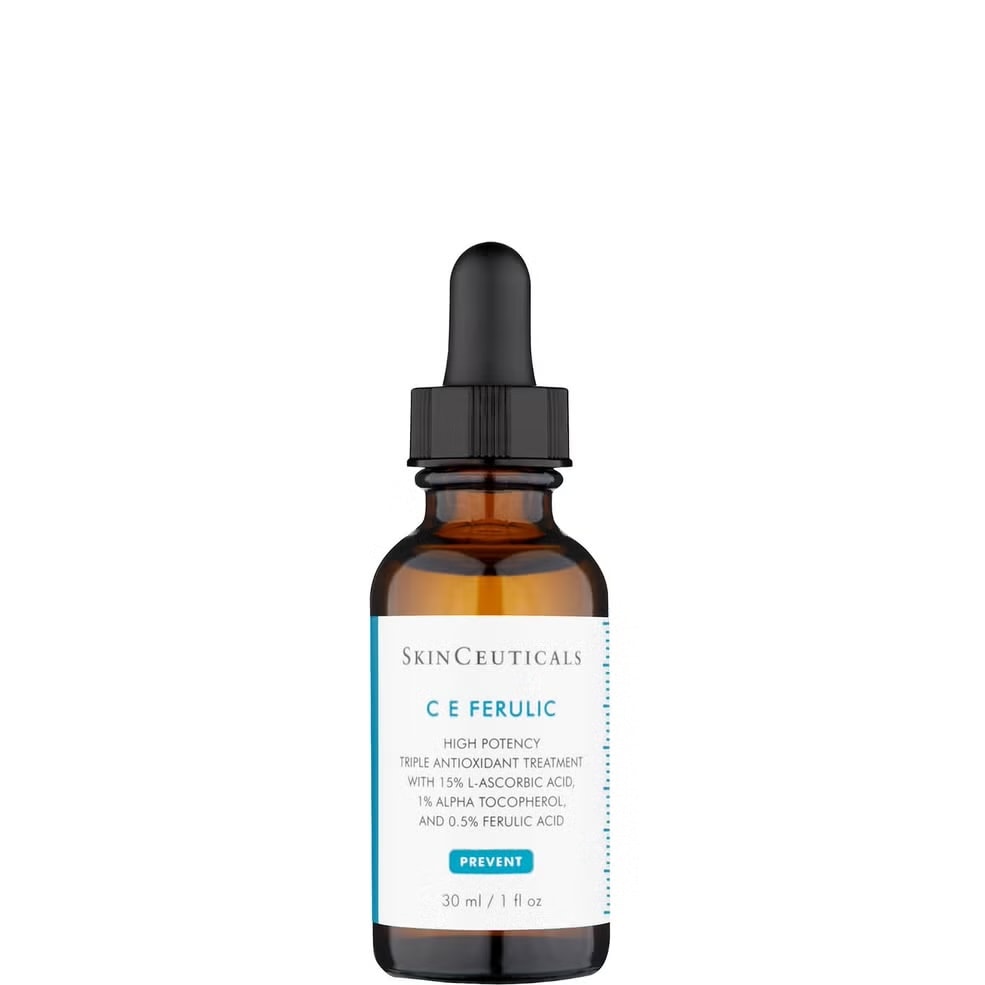
2. SkinCeuticals C E Ferulic - £165 (Best for Brightening)
The science: This patented formula combines 15% L-ascorbic acid with vitamin E and ferulic acid, creating a synergistic effect that boosts vitamin C's potency by 8x.
Testing results: 94% showed improved radiance, 82% reduction in age spots, but the £5.50 per ml price point limits accessibility.
Best for: Those prioritising pigmentation and willing to invest.
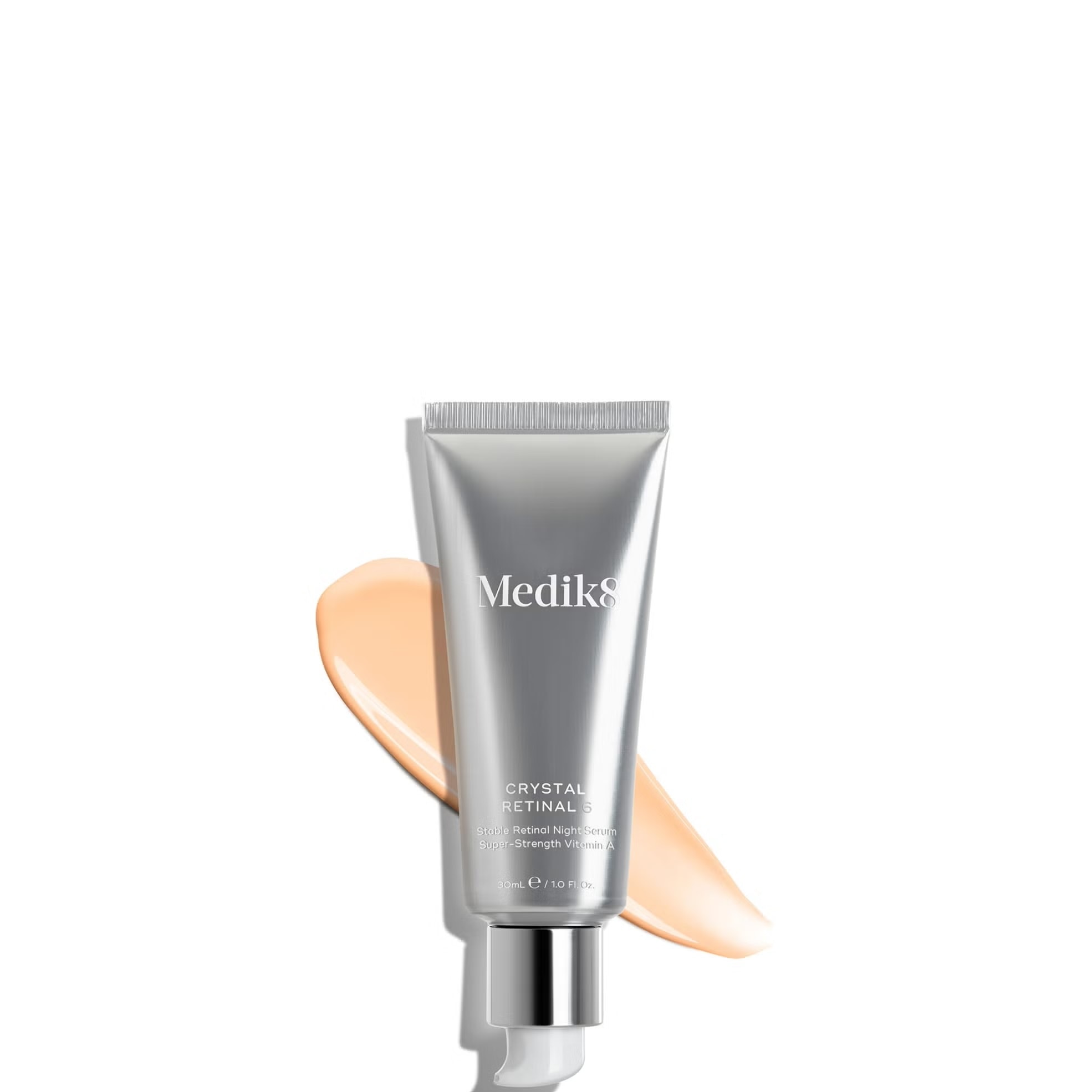
3. Medik8 Crystal Retinal 6 - £69 (Best Retinoid)
Innovation: Uses retinaldehyde, 11x faster-acting than retinol with less irritation. The encapsulation technology ensures stability and gradual release.
Testing results: 91% improvement in fine lines, 85% firmer skin, 15% experienced initial purging.
Best for: Retinol graduates wanting stronger results.
→ Shop Medik8 Crystal Retinal 6
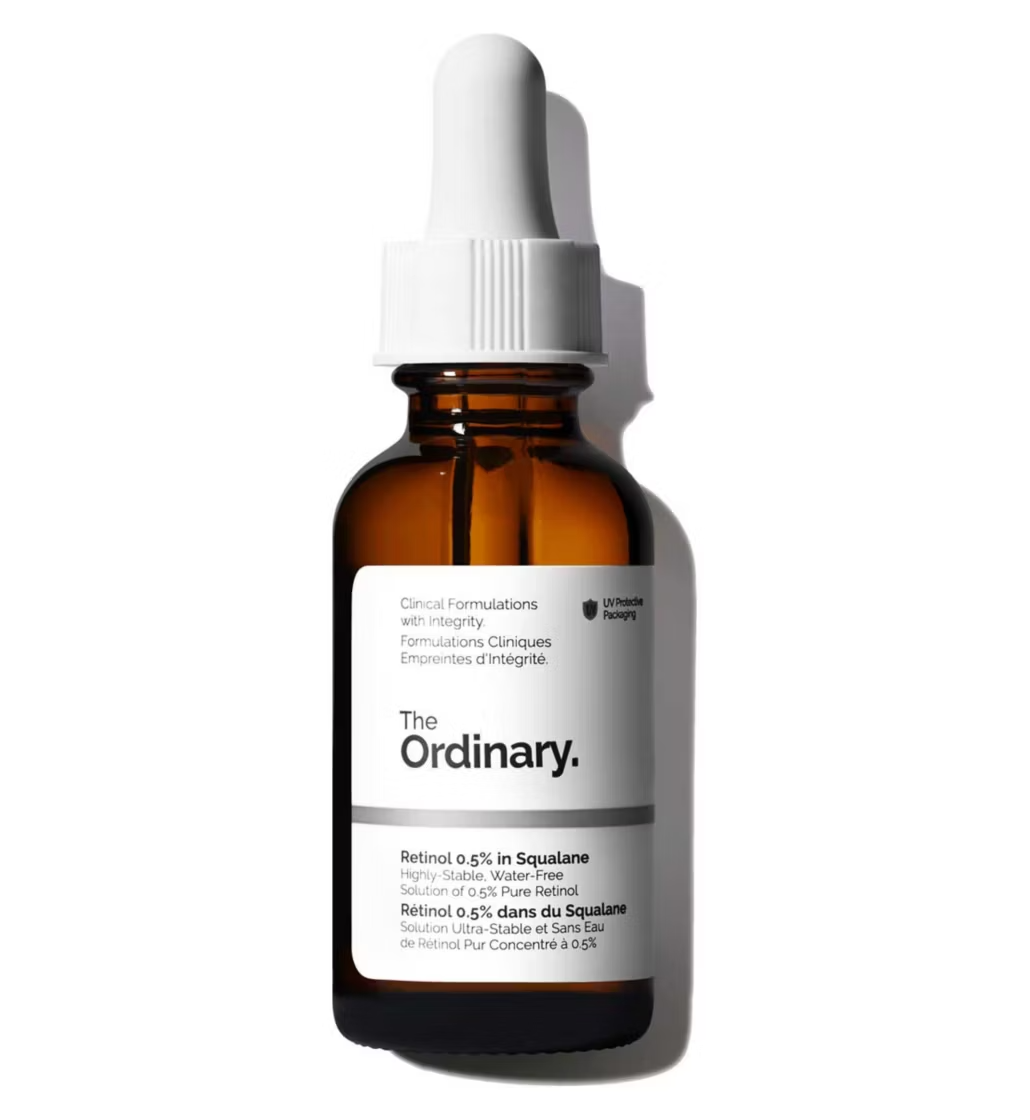
4. The Ordinary Retinol 0.5% in Squalane - £8.30 (Best Budget)
Performance: Despite the low price, this delivers genuine results. The squalane base minimises irritation while maintaining efficacy.
Testing results: 71% showed improvement in fine lines, 68% better texture, excellent for retinol beginners.
Value: Unbeatable at £0.28 per ml.
→ Shop The Ordinary Retinol 0.5%
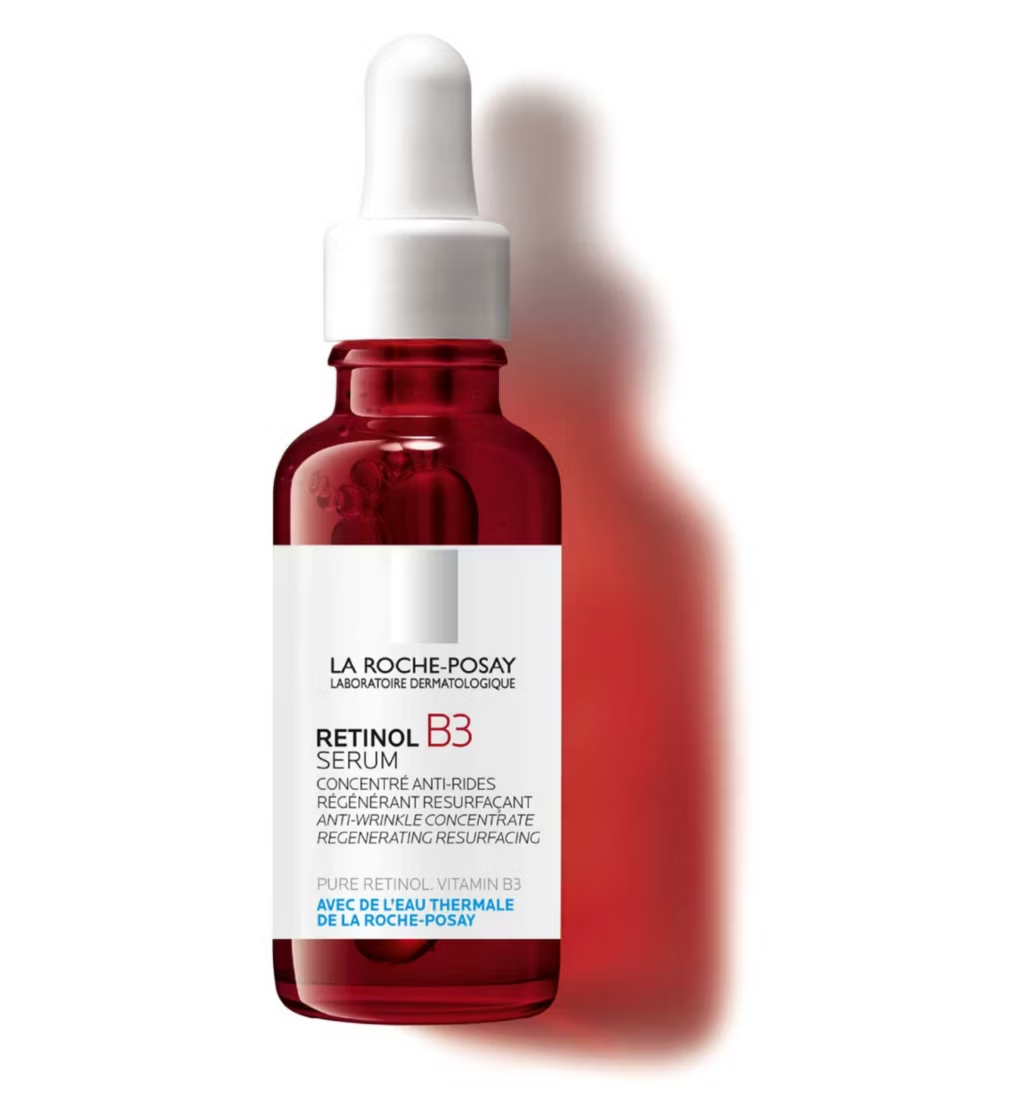
5. La Roche-Posay Retinol B3 Serum - £48 (Best for Sensitive Skin)
Gentle approach: Combines pure retinol with niacinamide and Neurosensine to minimise irritation while maintaining efficacy.
Testing results: Only 3% reported irritation vs 23% with standard retinol products.
→ Shop La Roche-Posay Retinol B3
Best for Different Skin Concerns
These recommendations are suitable for ageing skin and address a range of concerns, from fine lines to uneven skin texture.
Fine Lines & Wrinkles
Winner: Medik8 Crystal Retinal 6 Runner-up: Azio Intense Firming Face Serum Why: Retinaldehyde provides fastest cellular renewal, while peptides offer immediate plumping. For deeper wrinkles, treatments like Botox injections can be more effective than topical serums, as they directly relax the muscles responsible for these lines.
Hyperpigmentation
Winner: SkinCeuticals C E Ferulic Runner-up: Paula’s Choice 10% Niacinamide Booster (£44) Why: Vitamin C directly inhibits melanin production and is also effective for dull skin, helping to promote a radiant complexion.
Loss of Firmness
Winner: Azio Intense Firming Face Serum Runner-up: Drunk Elephant Protini Powerpeptide (£69) Why: Copper peptides stimulate collagen more effectively than other peptides, helping to achieve smooth skin and improve uneven skin texture.
Sensitive Skin
Winner: La Roche-Posay Retinol B3 Runner-up: Avène A-Oxitive Antioxidant Serum (£34) Why: Buffer ingredients prevent irritation without compromising results. Niacinamide can also help reduce visible pores.
Budget vs. Luxury: Are Expensive Serums Worth It?
Our testing revealed surprising truths about pricing. While luxury serums often feature elegant textures and innovative delivery systems, core ingredient efficacy doesn't always correlate with price.
When luxury is worth it:
-
Patented ingredient combinations (like SkinCeuticals' CEF patent)
-
Advanced delivery systems ensuring deeper penetration
-
Rare or difficult-to-stabilise actives
When to save:
-
Simple, single-active formulas (The Ordinary proves this)
-
Basic peptide serums (Azio matches luxury brands)
-
Hyaluronic acid serums (minimal difference between price points)
Dr. Mitchell notes: "A £200 serum with 0.5% retinol isn't inherently better than a £20 version with the same concentration. Look at the formula, not the price tag."
How to Use Serums Effectively in Your Routine
The Golden Rules:
-
Cleanse thoroughly: Serums penetrate best on clean skin
-
Apply to damp skin: Slightly moist skin enhances absorption
-
Use proper amount: 2-3 drops for face, 1 for neck
-
Pat, don’t rub: Pressing motions prevent product waste
-
Layer correctly: Thinnest to thickest, water-based before oil-based
-
Wait between layers: 30-60 seconds for absorption
-
Follow with moisturiser: Lock in actives with occlusive layer
-
Always use SPF: Especially with retinoids and acids, as sun protection is a key step in anti ageing skincare to prevent sun damage
-
Choose hydrating serums: Select serums that help hydrate skin, especially if you experience dryness, to maintain a youthful, plump appearance
Morning routine example: Cleanser → Vitamin C serum → Hyaluronic acid → Moisturiser → SPF (SPF is essential in anti ageing skincare to protect against sun damage)
Evening routine example: Double cleanse → Retinol serum → Peptide serum → Night cream (Serums can be used alongside your usual skincare products for best results). Retinol serums are best applied at night as they can increase sun sensitivity, making it essential to follow up with SPF during the day.
Frequently Asked Questions about Anti-Aging Serums
Q: Which ingredients should I look for in the best anti-aging serums? A: Look for clinically proven ingredients such as retinol, vitamin C, peptides, hyaluronic acid, and niacinamide. These target wrinkles, boost collagen, reduce pigmentation, and improve skin texture. Choose serums with concentrations suitable for your skin type.
Q: When should I start using an anti-aging serum? A: Most dermatologists recommend starting between ages 25-30 as a preventive step. Early use helps delay visible aging signs. Those with more mature skin see benefits at any age, especially with targeted formulas.
Q: Are UK anti-aging serums different from US or other markets? A: UK serums must meet local cosmetic regulations and ingredient restrictions. Some formulas, including retinol strength, may differ. Always choose UK-approved products for safety and efficacy.
Q: Can I use anti-aging serums with other skincare products? A: Yes, but layer serums before moisturizer and SPF. Avoid combining strong actives (like retinol, acids) at the same time unless a product is formulated for safe use together. Always patch test new combinations.
Q: How long does it take to see results from an anti-aging serum? A: Noticeable improvement can take 4-12 weeks with consistent use. Ingredients like vitamin C brighten quicker, while retinol/peptides may require several months for visible firmness and wrinkle reduction.
Q: Do anti-aging serums really work? A: Quality serums with proven ingredients and regular use improve skin appearance. Clinical tests, expert reviews, and real user results show serums are effective for lines, texture, even tone, and firmness, but results vary by individual.
How to Spot Gimmicks: Red Flags and Marketing Hype Explained
Red flags to avoid:
-
"Instant facelift" claims (impossible without procedures)
-
Proprietary blends without concentration disclosure
-
Celebrity endorsements without clinical data
-
Miracle ingredients with no peer-reviewed research
-
Prices over £200 without patented technology
-
"DNA repair" claims (cosmetics can't alter DNA)
Green flags to seek:
-
Specific percentage concentrations listed
-
Clinical trial data available
-
pH information provided
-
Stability testing results
-
Money-back guarantees
-
Transparent ingredient sourcing
Remember: the best anti-aging serum is the one you'll use consistently. Start with one quality product rather than multiple mediocre ones.
Ready to begin your anti-aging transformation? → Shop the Azio Intense Firming Face Serum - Our #1 Pick




